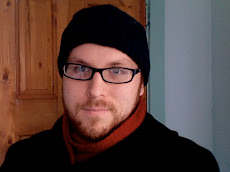After being very busy this week, last night I finally finished my first paper for grad school. Go me.
Since I've put a lot of work into it, I thought I had to share it with yall (You both? You singular?) in the blogosphere.
My study is Brownfields. If you don't know what that is (you probably don't), Brownfields are former industrial sites. Unused factories, abandoned buildings, shuttered businesses, etc. If you want a dictionary definition, it's:
brownfield |ˈbrounˌfēld|
adjective [ attrib. ]
(of an urban site for potential building development) having had previous development on it. Compare with greenfield .
noun
a former industrial or commercial site where future use is affected by real or perceived environmental contamination.
Thank you, mac dictionary. But anyways, I'm looking at ways to redevelop these, so that they're not such a socioeconomic black hole. This project that I've been working on is a literature review: I look at what other scholars have done on the subject and try to find holes in the research--errors, but mostly just what they've missed out on.
Most redevelopment that gets done is residential--in fact, most of it is really nice luxury apartments and condos in downtown areas--because developers (and cities that tax them) can make a lot more right away. Building factories is way riskier, and the return is lower. This is good, right?
But the problem is that the actual poor people who lived in these really shitty neighborhoods can't afford these really nice houses. So basically, poor neighborhoods basically get moved (the people of the neighborhoods, not the buildings). So instead of nice apartments fixing the problem of urban blight, they're just moving the problem. And no geographer is really focusing on building new factories, which could at least help the problem of urban unemployment. And in Milwaukee, we need that: unemployment among black men here runs a little over 50%.
So my methods and my ideas will probably be savaged by my professors. And really, my research is shite. But hopefully I can improve that, and make it an even bigger research project.
Subscribe to:
Post Comments (Atom)


No comments:
Post a Comment